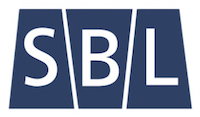No matter how much we enjoy our work, writing an index can at times be tedious, and even frustrating. We all know the disadvantages of full-text search; however, there are some things that can be made much easier with computer assistance. Search capabilities can be useful even though they can’t produce a quality index by themselves.
Adobe as Indexing Companion

I want to share some of the ways that I use Adobe Acrobat DC to assist me in writing my indexes. Caveat here: I work only with electronic documents, and much of my work is with writing where terminology is rather specific, and I know that I cannot depend only on search. Even in less technical, more narrative or conceptually based books, I find Adobe’s search capabilities can still be useful because authors tend to have some specific phrases that they use repeatedly. It’s a tool! (Although I work with Adobe Acrobat DC I believe that searching with Adobe Reader should be comparable.)
My first step is to develop an overall structure for my index using sections, chapters, and chapter sections (or even sub-subsections) as a guide before I get into the nitty-gritty details at the textual level. While I am developing this structure there are some questions pertinent to the textual indexing that Adobe can help me answer fairly early in the indexing process, especially in multiauthored technical books. The more details I can resolve early on leaves me free to really concentrate on the text and minimizes my final editing time.
Resolve Variations in Terminology Used
Often in multiauthored books, you discover early that there may be some variation in equivalent but different terminology. It’s helpful to have some guidance on what equivalent terms are going to be most frequently used. The search function on Adobe is wonderful for this process. For example, I find that the terms gender affirmation method and gender-affirming approach are equivalent and both are used. Using Adobe advanced search, it is simple to find how frequently each of those terms are used—just search and look at the length of the list.
Resolve Spelling Issues
In books with multiple authors, you may encounter variations in spelling, such as harmonization or harmonisation. A quick search will let me know that one spelling occurs only in the International Conference for Harmonisation name specifically (British English), so you know right away that the American spelling with a “z” will be the way to go for the subject term in the index.
Estimate the Importance of Terms
Early on I may encounter what I think might be an important name or subject, but I can’t decide whether to include it or not. Rather than having to come back later if it recurs, a quick search lets me know. If it’s three times in 500 pages, it probably doesn’t rate a main entry; maybe just a subentry under a more general topic. If that search shows me three occurrences, but a long page range for one of those, it goes in. If I look at a page and find “sulfanilamide disaster,” I know that this is relevant to the Pure Food and Drug Act as a concept.
Gather Terms by Location
I sometimes use Adobe search while setting up my index structure to generate a list of pages where that term or a concept occurs. My indexing software has a function called “Create subheadings from locators” that makes this search useful. In Adobe Acrobat advanced search a “hover” will display a page number so it’s quick and easy to enter those instead of having to go back and locate them later. For example, in a book on regulation of food and drugs, the Pure Food and Drug Act is likely to occur, may be discussed, or may simply be a passing mention. But I find that knowing that it occurs on pages 4–5, 48, 49, and 209 as I develop my structure can helpful.
Check the Accuracy of Locators
Using the search function to display occurrences also helps in checking your locators. It’s a quick way to check that you picked up the obvious explicit mentions of terms or names. Stepping through by page number (locator) can give you a quick glance at content that is useful even when it’s a more subtle concept, not an explicit term, that has been indexed.
Obviously, the search function doesn’t pick up implicit concepts, so its usefulness is limited to helping the human indexer. I’m glad to have this helper, but I’m not worried about being replaced by it, so far.



Leave a Reply